Third Course: The Head Butler Serves Another Helping
Continued from Part 3.
“Mr. McAllister, with ill-concealed triumph, proceeds this week to rub salt into the wounds so freshly made.”
—The New York World, April 16, 1893
His thick sauce decidedly unappetizing for Chicago’s taste, Ward McAllister surveyed the indigestion caused by his arrogant advice column targeted at the city about to host the 1893 World’s Columbian Exposition.

Nathan Lane portrays Ward McAllister in HBO’s period drama The Gilded Age. [Photo by Alison Rosa Cohen © 2021 Heyday Productions, LLC and Universal Television LLC.]
The “Autocrat of Drawing Rooms” (yet another moniker he earned) read Chicago’s harsh responses and seemed flattered by the attention. One Chicago newspaper story in particular caught his fancy. Gussie Gander’s “Chappie Chap” column in the Chicago Times offered a list a flippant questions that should be answered by applicants for admission into high society. Inexplicably, McAllister took the bait and provided glib responses to each question.
On Sunday, April 16, 1893, the World published another interview with the “Dictator of Society” (that’s him, too). In this follow-up McAllister “endeavored to make himself more clear” and answer the criticisms levied against him. He sharpened his points of etiquette for a second skewering of Chicago pork. This new round of condescension only further stoked the flames of inter-city rivalry.
The man sure knew how to throw shade.
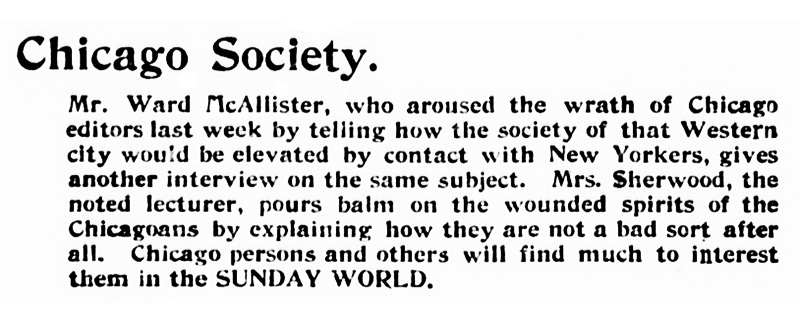
An advertisement for Ward McAllister’s follow-up interview after he “aroused the wrath of Chicago editors.” [Image from the New York Evening World, Apr. 15, 1893.]
M’Allister Again on Chicago
“I was rather amused at the way in which the Chicago people have construed some of my remarks. I never intended to convey the impression that a New Yorker, as a man, is necessarily superior to a native of Chicago. There are a great many wealthy and charming people in Chicago—men who have great creative powers. The Chief Justice of the United States was a Chicago man.[1] In my opinion no man has ever made $1,000,000 who has not had brains. But by means of the mingling of Chicago and New York society persons during the World’s Fair, the feeling that Chicagoans have had—that they didn’t care to go to Newport for fear they would have to sit upon the stool of probation, that New York fashionable persons would not accept them—will pass away. They will find that they are congenial to New Yorkers, and that we sympathize with them. …
The newly elected Mayor of Chicago understands the situation aright. He is a travelled man having made a tour of the world and written a book on the subject. [2] He knows that while Chicago is a wonderful city, having developed from one little shanty on Skunk Creek in about fifty years to a great commercial centre, it is too much to expect that refinement and culture should have kept pace with material development. The leaders of society in the Windy City, I am told, are the successful pork packers, stock yard magnates, cottolene manufacturers,[3] Chicago Gas Trust manipulators and dry goods princes. These gentlemen are undoubtedly great in their way, but, perhaps, in some cases, unfamiliar with the niceties of life and difficult points of etiquette many of which constitute polish in a society man or woman.
For several years, for example, Chicago society persons have always hired a man to lead their germans. He gets $25 a night. That, to a New Yorker, appears extraordinary. It is a little out of the line. Again, one of Chicago’s most famous millionaires has built a ballroom in the attic, which is approached by an elevator. This seems to be an absurdity. Here, in the East, the opinion prevails that the approach should be as artistically effective as the ballroom itself.
It takes nearly a lifetime to educate a man how to live. Therefore Chicagoans can’t expect to attain social knowledge without experience and contact with those who have made such things the study of their lives. In these modern days, society cannot get along without French chefs. They are the great professors of the culinary art. A man who has been accustomed to delicate fillets of beef, terrapin, pate de foie gras, truffled turkey and things of that sort, wouldn’t care to sit down to a boiled leg of mutton dinner, with turnips. That is the point I desired to make when I advised that a number of French chefs be employed.
The reason I referred to restaurants, and the fact that they would be much used by New York fashionable persons, is that it has become the habit in Europe to dine in these public places. I see that one Chicago paper suggests that there are no private rooms in the restaurants at the Fair, and that therefore our society people will not care to patronize them. Here, you see, the whole point is missed, for it is the very publicity of the thing which makes the restaurant attractive. The Savoy and Bristol, in London, are great restaurants, where the whole world dines. Of late the Bohemian element has crept in there, and people are admitted who would be excluded from Delmonico’s. Here we have club restaurants, where women may go in evening dress and see and be seen.
American people have yet to be educated up to the use of champagne. The English were clever enough to find out that it takes ten years for this wine to get in condition. My allusion to Burgundies and old clarets, which has stirred up one of the Chicago papers, was made because there is great indifference as to the quality of all wines, excepting champagne, which was established as the feature of all dinners by example of the Prince of Wales. The glorious old wines our forefathers used to give us for dessert are neglected. Persons who have such wines can be numbered on the fingers.
In all the comments that I have read in the Chicago papers I have observed some little humor, and also some little sense. One paper [the Inter Ocean] says that it is evidently my opinion that ‘cultivated society is one in which entertainment of the stomach is perfectly understood.’ That is a sound maxim. This same paper says: ‘He was careful to omit from his remarks any references to culture and refinement.’ Culture and refinement are matters of slow growth, and must have time to develop in. As a general rule they are found to be characteristics of old communities, not new.
Though I did not expect, as one journal [also the Inter Ocean] intimates I did, that the World’s Fair was to be held for the benefit of New York society, I may say that what would satisfy the cultivated European would meet with the approbation of New York. I have always found that men from all parts of the country have had an appreciation of refined and cultivated people.
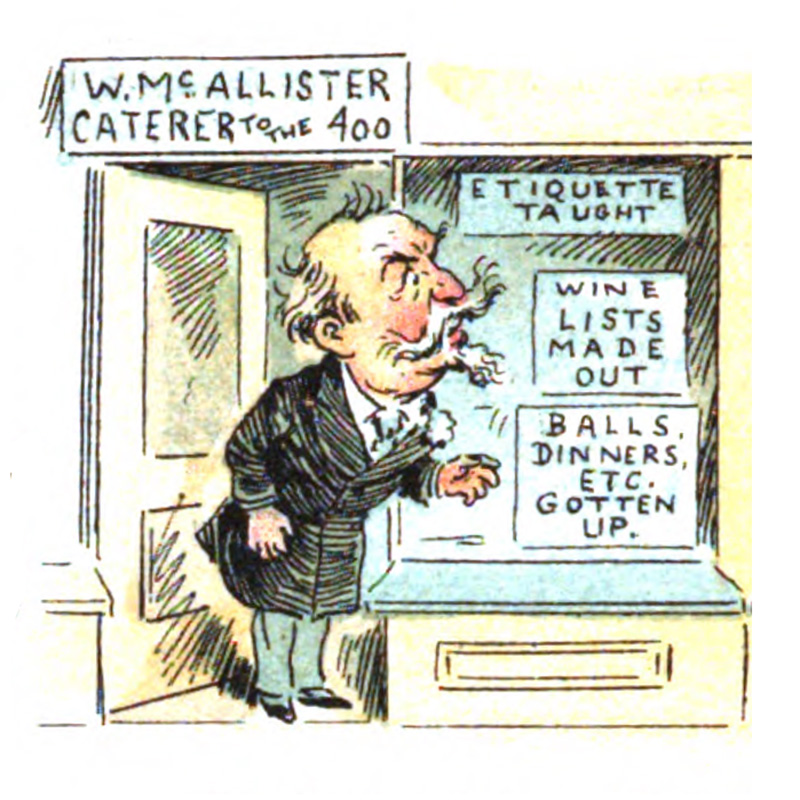
A cartoon depicts Ward McAllister as the “Caterer to the 400.” [Image from Puck, Jul. 19, 1893.]
1. In what manner do you propose to condone the fact that your money was made in trade?
My answer is that trade is respected all over the land. Even the Duke of Argyle put one of his sons in trade.
2. Can you trace your ancestry back to the Chicago fire? If not, how do you propose to square yourself?
To this I reply, it is very well to have birth, but if you lack that, refinement and culture will replace it.
3. Are you prepared to give a line of diners to Mac and his friends at $50 a plate, exclusive of wines, at nothing less than $10 a bottle?
Nobody is idiotic enough to pay $50 a plate for any dinner. Gentlemen are never prodigal. Their aim is to have the best of everything in viands and wines, but nothing lavish. Like the French they pride themselves on their economy in such matters and in having acquired the art of loving, which so few of us have attained.
4. What valid excuse have you for being on earth?
It is a position, nolens volens, we are forced to assume.
5. Do you ever eat fish with a knife?
We never ever eat fish with a knife.
6. What price in cold cash are you prepared to pay Mac for pronouncing you to be a member of the aristocracy?
By referring to my book it will be seen that all attempts at bribery have failed. [4]
7. Do you really and truly enjoy a dish of terrapin, or does the mere sight of it gag you?
Unquestionably to-day terrapin is as choice a dish as canvas-back duck.
8. What business, domestic or personal sacrifices are you prepared to make in order to be enrolled among the elite?
Better enroll yourself among the elite of your own town at any cost.
9. Would you stay in Chicago at all if your business did not compel you to, or if you gained McAllister’s assurance that you and your millions would be decently received in New York?
Two of the happiest years of my life were spent in a Western city.[5]
10. Do you consider Ward McAllister a great man, a simple poseur or an ordinary, every-day, matter-of-fact damn fool?
I require no Chicago indorsement.
You see, that disposes of those questions. I wish I had all the accomplishments attributed to me by another paper in Chicago [the Post]. Unfortunately, I am not a good cook, and have never yet filled the place of head butler.
The difficulty with our Chicago friends is that they are annoyed at the very evident truth of my observations. The truth, as a rule, is not acceptable, you know. A celebrated lawyer and friend of mine named Pettigrew, who lived in South Carolina, once told me a story that illustrates this point. Pettigrew was a Federalist of the extreme type. A rough fellow, meeting him one day on the street, said:
‘Mr. Pettigrew, you are a damned rascal.’
‘Oh, no,’ said Mr. Pettigrew, ‘there is no rascal in me, my friend.’ Then the rough fellow said:
‘You are a damned liar!’
‘No, my friend, I am not a liar. All Charleston knows that I am truth itself.’
‘Well, you are a damned Federalist.’
Whereupon Mr. Pettigrew knocked him down for telling the truth. You see that is just the way these Chicago people feel towards me. They want to knock me down for telling the truth about them.
As for the commonplace epithets that have been applied to me, I have three volumes of newspaper clippings containing every epithet known to mankind, applied by persons who criticized my book. Some of the names that these Chicago papers have called me are so original as to be amusing.
We in New York are familiar with the sharp character of the Chicago magnates, and many of us have learned to our cost that the almighty dollar is the trail they are following. These Chicagoans should not pretend to rival the East and the Old World in matters of refinement. Their growth has been too rapid for them to acquire both wealth and culture.
At the same time it is foolish, when they have such a glorious record of progress, to feel at all hurt at any criticism. Billingsgate is a poor argument. My advice to our Chicago friends would be carefully to study and ponder over all proper criticism and to try to overcome and change everything objectionable that New Yorkers may not be astonished or shocked at anything they may see when they visit the Exhibition.
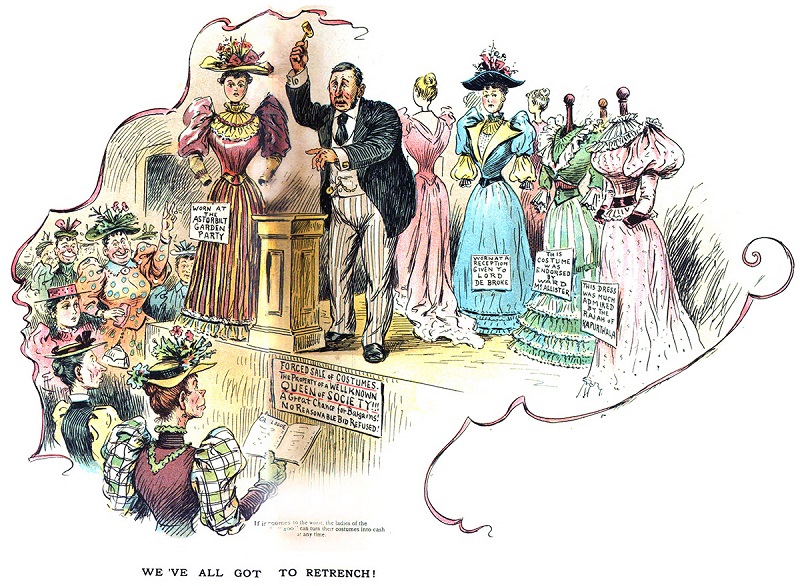
“This costume was endorsed by Ward McAllister” announces a sign in this cartoon about Gilded Age fashion. [Image from Puck, Aug. 30, 1893.]
Why not have a shooting gallery?
“I require no Chicago indorsement.”
—Ward McAllister
In another interview, McAllister denied that he ever “said anything about ladies sitting on the doorsteps,” and offered this defense of his comment about “Mr. Pullman’s ballroom in the attic” in the first World interview:
“The only criticism I made was about the novel idea of putting a ballroom in a man’s attic. In this city we don’t go to balls in private houses by climbing a ladder or going up an elevator. A bowling alley is also an objectionable feature in any house. Why not have a shooting gallery?” [“How to Give a Dance”]
One might imagine the danger McAllister would find himself in if visiting a Chicago mansion outfitted with a shooting gallery!
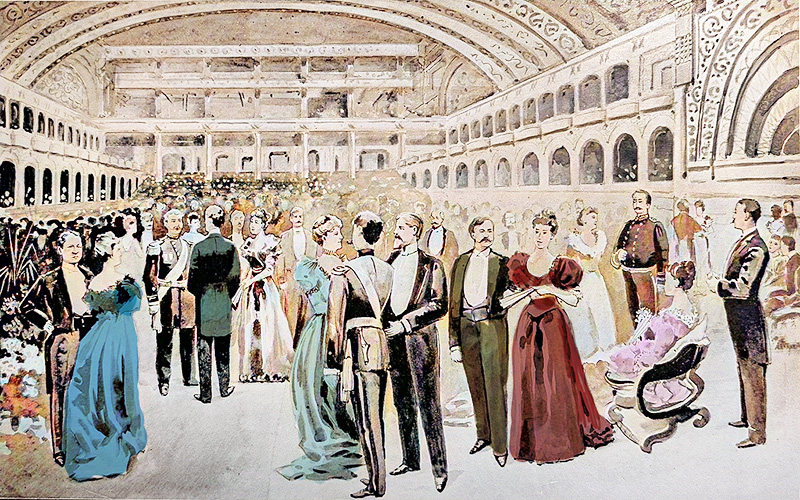
Chicago society, joined by several guests from New York society, came out for the Inaugural Reception of the World’s Columbian Exposition, held in the Auditorium on October 19, 1892. Dedication Day on the fairground was held two days after the great ball. [Image from Dedicatory and Opening Ceremonies of the World’s Columbian Exposition. A. L. Stone, 1893.]
Another asinine screed
His reply managed to ruffle Chicago’s feathers once gain. “Ward McAllister has relieved himself of another of his asinine screeds,” warned the Chicago Evening Journal [April 17, 1893] “… It is a pity that his knowledge of what he is talking about is not in some degree commensurate with the interest he appears to take in it.” McAllister, the paper claimed,
“is not worth taking seriously. He represents nothing but himself and a very small circle of brainless society people whose lives are wholly devoted to pleasure seeking. In the great, energetic, bustling metropolis they are mere froth on the surface and of no more importance than the champagne which seems to be McAllister’s first thought and which, perhaps, is responsible for some of the sapient sayings. He is of about as much consequence as a bottle of his beloved beverage which has stood uncorked overnight.”
The Inter Ocean [April 18, 1893] argued that Chicago had not been angered by McAllister’s insults, though still took the opportunity to fling a few more back at him:
“The Ward McAllister incident has been made additionally amusing by the seriousness with which the New York press deprecates the anger of Chicago in taking note of Mr. McAllister’s silly so-called criticisms. It is true that the New York gentleman … was designated by the term ‘ass’; but that was not done in anger. The object was simply to apply to Mr. McAllister the word of all others in the English language descriptive of his dominant characteristics. That which grieves the Chicago mind is the fact that the recognized leader of society in the hitherto foremost city of America should feel authorized to advertise to the world, first, that the belly is the basis of culture in New York, and second, that Chicago thinks of New York society as the highest product of American civilization.
Mr. Ward McAllister has been regarded by us as a creature at whom to level gibes and jests … He is a fellow of the backstairs unaccountably set up as an ornament of the drawing room, a dull-witted duffer with too little common sense to keep his bray subdued to the ears of his confreres. We are angry with the New York press for its crass credulity in believing that we could be angry with Mr. McAllister …
We are not half as much concerned with the opinion New York may hold of us as we are with the wish to receive our honorable foreign visitors with that cordiality that shall make them oblivious to the fact that they are in a strange land. … For those things that pertain to style and fashion and the right serving of wine, Chicago, very likely, will be ruled by its own ideas of polite propriety without resort for instruction to such a pretty fellow as Ward McAllister.”
An advertisement for a Chicago tailor shop [Chicago Tribune April 30, 1893] included a poem celebrating the arrival of President Grover Cleveland, and poked fun at the McAllister Affair with the verse:
“Ward McAllister announces,
That our ways are crude and plain,
Our ‘four hundred’ he denounces,
Says we can’t frappé champagne.”
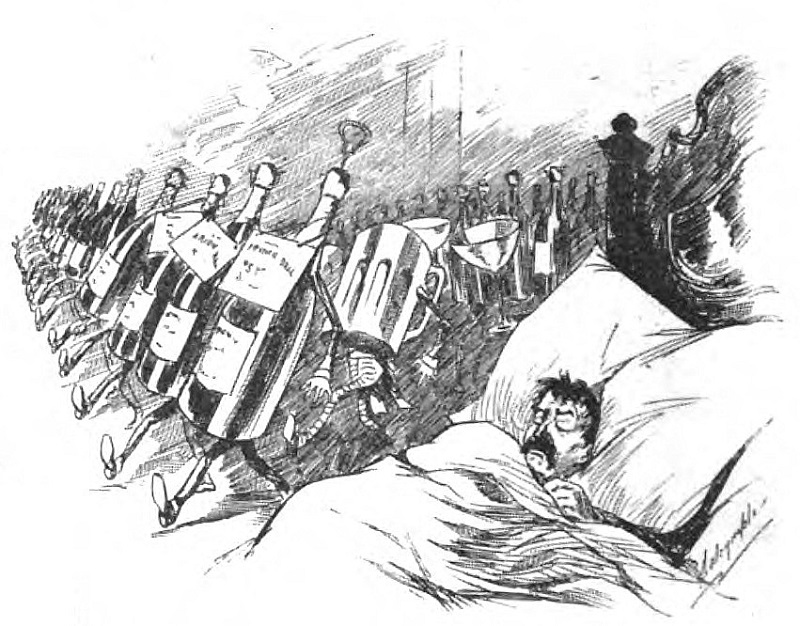
“It is a mistake to frappé too much,” advised Mr. McAllister about chilling wines. “We never frappé it as much as New York City frappés her hospitality,” responded the Chicago Dispatch. [Image from Puck Nov. 9, 1892.]
The study of vulgar but ambitious millionaires
“I don’t wish to weary you, dear boys, with too much of McAllister,” cautioned Gussie Gander in the “Chappie Chap” column of the Chicago Times [April 19, 1893], “but I really can’t help feeling complimented by his kindly action in taking up the series of questions I printed in this column last week and answering them seriatim in his second diatribe on Chicago…” Gander noted that McAllister’s answers
“are couched in a scholarly vein, and I have but one criticism to make upon them. That is, they are given as though the questions had been addressed to Mac himself, when as a matter of fact they were prepared expressly for the study of such vulgar but ambitious millionaires who might wish to enter the charmed circle of Ward’s elect.”
Challenging McAllister’s maxim that “it takes nearly a lifetime to educate a man how to live,” The New Haven (CT) Morning Journal and Courier equated his statement to “how to have your food rightly cooked, how and when to serve your wines, and how to have all the appointments of your table right.” The paper conceded: “So it does, Wardy, and many people live to be old without being certain that they are going to have enough food to eat, let alone the wines.”
With just a few weeks to go before the World’s Columbian Exposition would open its gates, the chill between New York and Chicago was enough to completely freeze the wine.
Continued in Part 5.
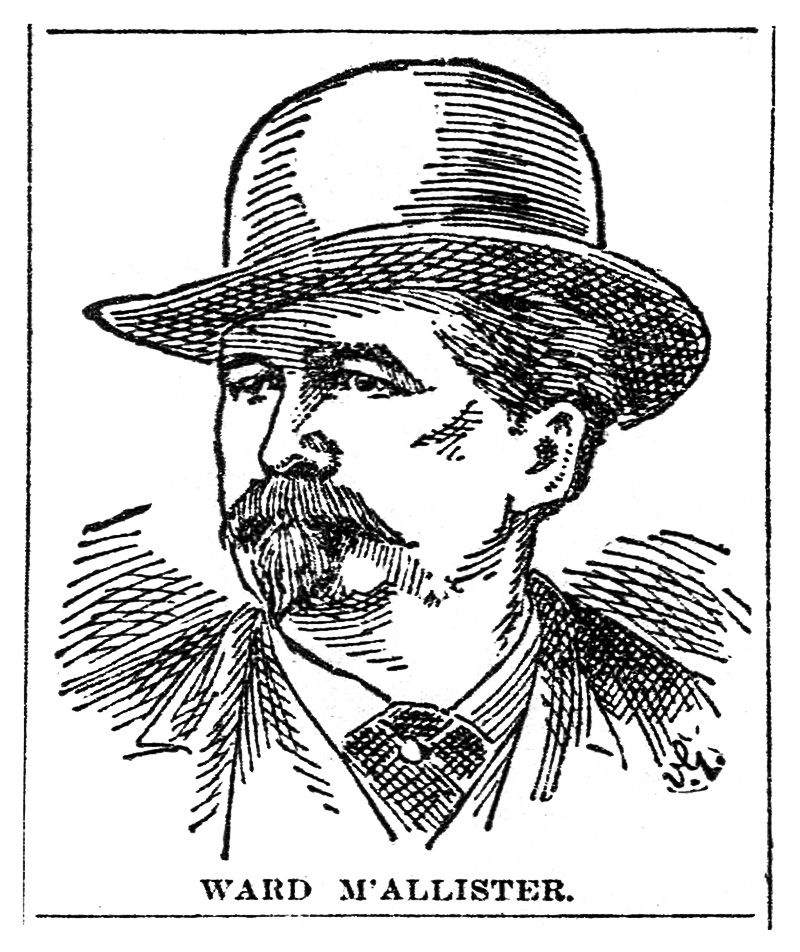
Ward McAllister, as depicted in the Birmingham (AL) News, Feb. 1, 1895.
NOTES
1. Although born in Maine in 1833, Melville Weston Fuller practiced law in Chicago before serving as the eight Chief Justice of the Supreme Court from 1888 until his death in 1910. He is buried in Graceland Cemetery in Chicago.
2. Chicago Mayor Carter Harrison’s described his travels in Europe in his 1889 memoir A Race with the Sun.
3. Cottolene was a popular brand of shortening made of beef suet and cottonseed oil made by the N. K. Fairbank Corporation of Chicago. The company displayed this and other product in the Agricultural Building.
4. In Society As I Have Found It.
5. McAllister lived in San Francisco as a young man.
SOURCES
“Chappie Chat” Chicago Times Apr. 11, 1893, p. 4.
“Chappie Chat” Chicago Times Apr. 19, 1893, p. 4.
“How to Give a Dance” Chicago Tribune Apr. 23, 1893, pp. 33–34.
“Real Life in This City” New York World Apr. 16, 1893, p. 4.
McAllister, Ward Society As I Have Found It. Cassell Pub. Co., 1890.
“M’Allister Again on Chicago” New York World Apr. 16, 1893, p. 25.
“The McAllister Incident” Chicago Inter Ocean Apr. 18, 1893, p. 4.
Nicoll the Tailor advertisement Chicago Tribune Apr. 30, 1893, p. 11.
“Spots Even on New York” Chicago Evening Journal Apr. 17, 1893, p. 4.
“Ward McAllister says …” New Haven (CT) Morning Journal and Courier Apr. 21, 1893, p. 1.
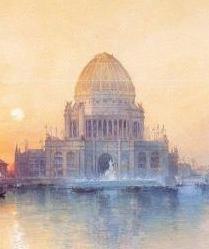
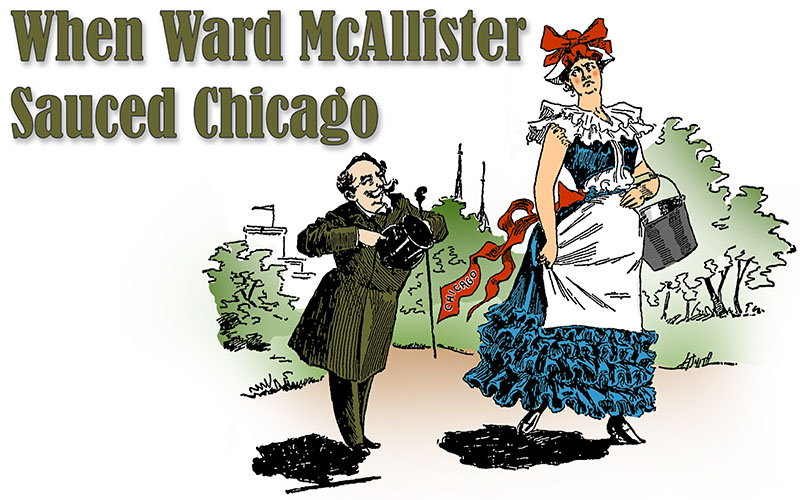
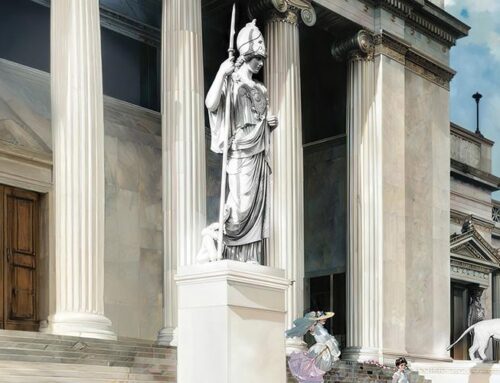
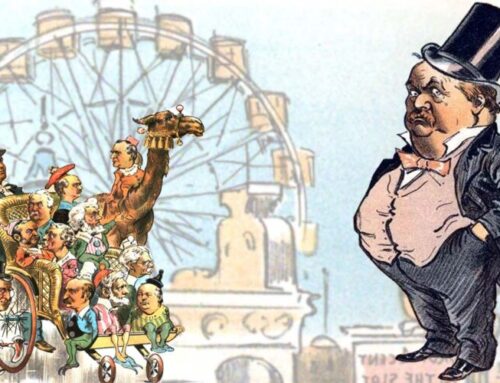
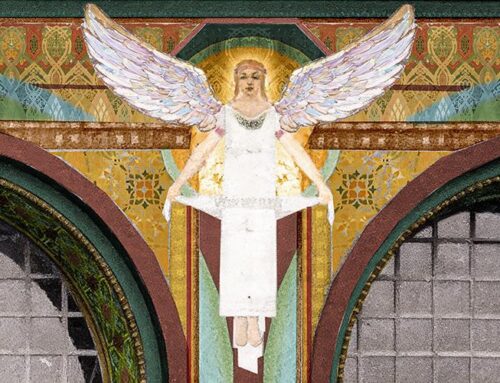
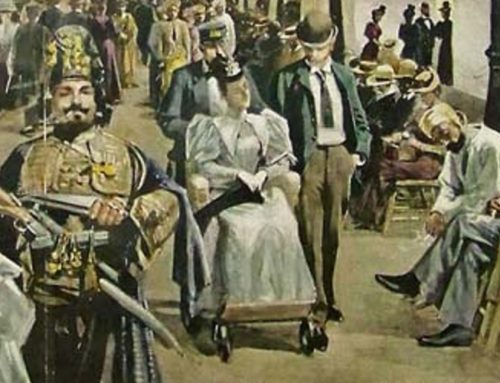

Leave A Comment